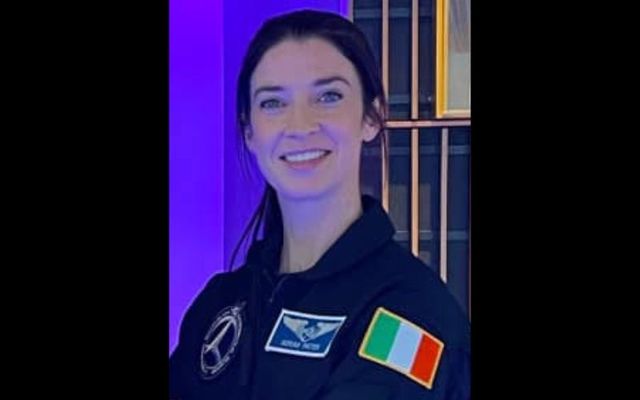Dr. Norah Patten is set to become the first Irish astronaut to go to space after being selected for a research mission on board Virgin Galactic's new Delta vehicle.
"Sometimes impossible dreams can come true," Patten, from Ballina in Co Mayo, said on social media on Thursday, June 20.
Patten wrote that she's had her "sights set on space" ever since she was 11 years old when she visited NASA's Glenn Research Center in Ohio.
Deeming it a "very special day," Patten announced that she has been named as a payload specialist alongside Dr. Shawna Pandya, from Canada, and Kellie Gerardi, from the US, for the International Institute for Astronautical Sciences' (IIAS') next research spaceflight with Virgin Atlantic.
View this post on Instagram
The IIAS said on Thursday that the trio of bioastronautics researchers will be included in the crew for the IIAS-02 Mission, a "first-of-its-kind, multi-researcher dedicated scientific mission on Virgin Galactic’s new Delta vehicle."
The international crew of IIAS-02 have years of experience working together as a team in dynamic, operational research environments, IIAS noted.
IIAS Founder and Executive Director Dr. Jason Reimuller said on Thursday: “We are excited to continue to work with Virgin Galactic and its unique platform for human-tended microgravity research in our second spaceflight.
"In their tenures at IIAS, Kellie, Shawna, and Norah have consistently demonstrated the teamwork, excellence, and expertise needed to produce high-quality, cutting-edge research in operational environments.
"Our organization is looking forward to working with Virgin Galactic to optimize the research potential of their Delta-class space vehicles while opening the doors for future IIAS scientist-astronauts.
Patten said on Thursday that it's an "honor" to have been named to the crew alongside Pandya and Gerardi.
View this post on Instagram
Patten told RTÉ News that the research team will be utilizing every minute of the spaceflight to conduct pivotal research.
"The research spaceflight is a one-day suborbital spaceflight and from take-off to landing it's less than two hours," the Irish astronaut said.
"But we'll be using every single moment of that to try and maximize the research outputs.
"I will be flying as a payload specialist, and I'll be testing a variety of experiments in space.
"This is a progression of the Institute's inaugural spaceflight, which took place with Virgin Galactic in 2023 testing fluids research and other biomedical research."




Comments